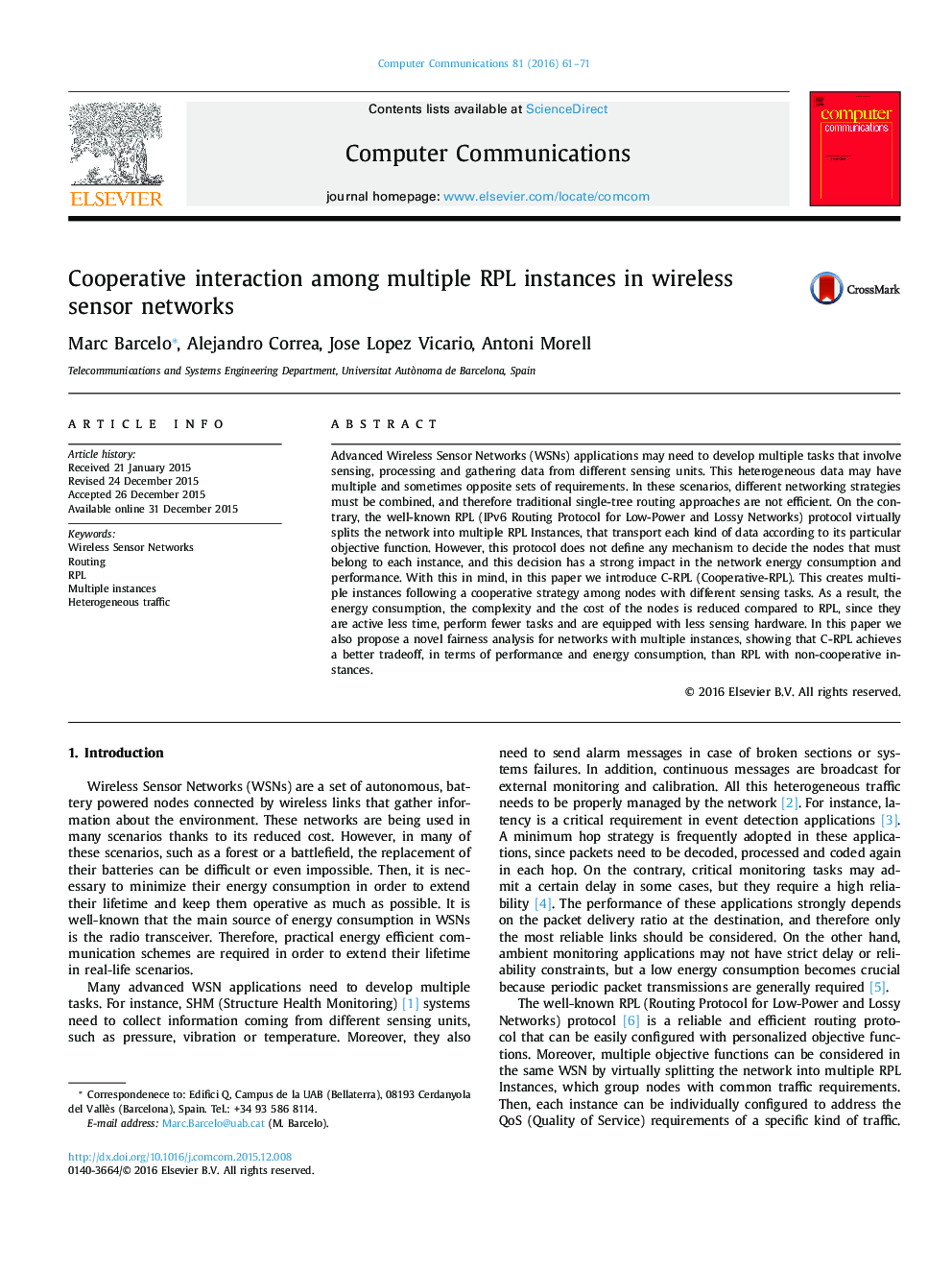| Article ID | Journal | Published Year | Pages | File Type |
|---|---|---|---|---|
| 445668 | Computer Communications | 2016 | 11 Pages |
Advanced Wireless Sensor Networks (WSNs) applications may need to develop multiple tasks that involve sensing, processing and gathering data from different sensing units. This heterogeneous data may have multiple and sometimes opposite sets of requirements. In these scenarios, different networking strategies must be combined, and therefore traditional single-tree routing approaches are not efficient. On the contrary, the well-known RPL (IPv6 Routing Protocol for Low-Power and Lossy Networks) protocol virtually splits the network into multiple RPL Instances, that transport each kind of data according to its particular objective function. However, this protocol does not define any mechanism to decide the nodes that must belong to each instance, and this decision has a strong impact in the network energy consumption and performance. With this in mind, in this paper we introduce C-RPL (Cooperative-RPL). This creates multiple instances following a cooperative strategy among nodes with different sensing tasks. As a result, the energy consumption, the complexity and the cost of the nodes is reduced compared to RPL, since they are active less time, perform fewer tasks and are equipped with less sensing hardware. In this paper we also propose a novel fairness analysis for networks with multiple instances, showing that C-RPL achieves a better tradeoff, in terms of performance and energy consumption, than RPL with non-cooperative instances.
